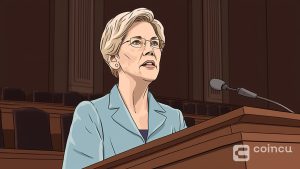IMF chief economist says crypto regulation is better than an outright ban
The chief economist of the International Monetary Fund (IMF), Gita Gopinath, recently said that developing countries should refrain from banning cryptocurrencies. Instead, it describes global regulation as a “primary need” for the industry.
The global challenge of cryptocurrency (IMF)
Gopinath was describe Regulatory issues related to cryptocurrencies at a National Council of Applied Economic Research (NCAER) event on Wednesday (December 15). She said global cryptocurrency policy is urgently needed to address the challenges the technology poses for emerging economies.
Furthermore, in their opinion, there is no point in banning them as the exchanges have a global presence.
“Regulation of crypto assets and currencies is important, especially for emerging and developing countries, as a ban is unlikely as crypto exchanges are regulated.”
In September this year, China introduced a ban on all cryptocurrency exchanges, causing exchanges like Bitmart and Biki to flee the country. India, meanwhile, is still considering a similar ban.
Gopinath insists on having a “global” policy on cryptocurrencies, as cross-border transactions make every country’s regulations virtually null and void.
They can be used to bypass “exchange rate controls, capital controls and capital mobility measures,” says Gopinath.
MicroStrategy CEO Michael Saylor highlighted this feature as extremely useful from a business perspective. In contrast to real estate, Bitcoin can be moved at the “speed of light” across borders into tax-friendly jurisdictions.
Christine Lagarde, President of the European Central Bank, has also promoted global crypto regulation to combat its potential for decentralized “money laundering”.
Rules instead of bans
In addition to India and China, most other jurisdictions have ruled out a crypto ban and have instead taken a regulatory approach. In fact, many U.S. officials, including Ted Cruz, Hester Peirce, Pat Toomey, and others, see China’s ban as a great opportunity to welcome the crypto industry and capitalize on the new change.
Singapore has also decided against a ban. The director of the Monetary Authority of Singapore (MAS) Ravi Menon believes that cryptocurrencies can offer a bright future for the economy and society – so create a regulatory framework for it to work.
Join Bitcoin Magazine Telegram to keep track of news and comment on this article: https://t.me/coincunews
Follow the Youtube Channel | Subscribe to telegram channel | Follow the Facebook page




















